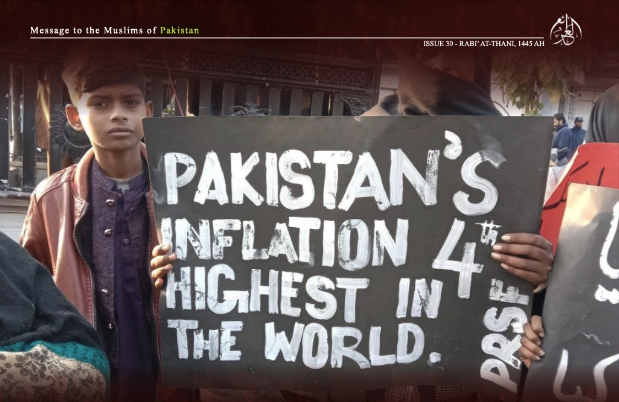Introduction
The Islamic State Khorasan Province (ISKP) has increasingly focused on Pakistan in its online propaganda campaigns in recent months. The Afghan-based terror group opposes both the Taliban regime in Afghanistan and the Pakistani government, which it aims to overthrow to create a transnational caliphate. Amid rising levels of violence in the country and its ongoing economic crisis, ISKP continues to pose a substantial and ongoing threat to Pakistan. This Insight explores the physical threat that the ISKP poses to Pakistan, the recent rise in the group’s online activity focused on the country, and how tech companies can do their part to address these threats.
Previous ISKP Attacks
The ISKP has claimed responsibility for multiple violent attacks in Pakistan in recent years. On 30 September 2023, an ISKP suicide bombing killed 52 and wounded dozens in the Mastung District of Southwest Pakistan’s Balochistan province. On 30 July 2023, the ISKP took responsibility for a suicide attack at a political rally for the Jamait Ulema-e-Islam (JUI-F) that killed more than 60 people in northwest Pakistan’s Bajaur District, which borders Afghanistan. The JUI-F is a Sunni Islamist party with close ties to the Afghan Taliban, with whom the ISKP has been engaged in an ongoing insurgent war. The 30 July attack came after the ISKP published a 92-page manifesto that explicitly stated its intent to attack the JUI-F for its participation in local elections. The Khorasan Diary, an independent research organisation that monitors militant groups in the region, notes that the ISKP has claimed responsibility for at least 23 attacks targeting JUI-F in Bajaur alone.
Earlier ISKP attacks have also resulted in high death tolls. In 2018, the group claimed responsibility for two suicide bombings: one at a political rally in Mastung, Balochistan, that claimed the lives of 189 people and another at a market in Orakzai in the country’s northwest that killed 26 and wounded 55. In the past, ISKP has also targeted Pakistani religious minorities, killing 75 at the Lal Shabaz Qalander Sufi Shrine in Sindh province in a 2017 attack and killing eight in an attack on a Christian church in Quetta in December of that year. Given this trend of demonstrably deadly attacks, mentions of Pakistan in the ISKP’s official propaganda should be taken seriously by officials.
Pakistan-focused Propaganda
The ISKP has been highly critical of the Pakistani state and various groups inside the country. The organisation operates a vast online presence through its de-facto mouthpiece, Al-Azaim Media Foundation, through which it publishes lengthy manifestos and publications such as The Voice of Khorasan. This content is regularly published in Pashto, Persian, Tajik, Uzbek, and English and disseminated through messaging applications such as Telegram and Rocket.Chat, and websites such as archive.org or those operated by its sympathisers. In addition to disseminating messages, these propaganda accounts and pages have been linked to fundraising on platforms such as the Russian-Cypriot payment platform QIWI via accounts linked to Sperbank, Russia’s largest bank. Money raised in this way is ultimately used to fund ISKP operations in places such as Pakistan. Finally, ISKP propaganda has devoted an increasing amount of attention to Pakistan in recent months, and, given its track record, this likely has ominous future implications.
The two most recent issues of Voice of Khorasan have devoted lengthy articles to criticising Pakistan on a range of historical and contemporary matters. The September–October edition opens with an article titled ‘Message to the Muslims of Pakistan’, which calls on the country’s Muslims to “fight shoulder to shoulder with the mujahedeen of Islam to week out the unholy system of Muradin [apostasy] in Pakistan”. The article points specifically to the country’s ongoing economic crisis and takes aim at Chinese investments. Moreover, the subsequent edition contains an article titled ‘O the Muslims of Pakistan! Don’t Miss the Caravan of Glory’ (Fig. 1), which ominously laments that although Pakistan is the only nuclear-armed state in the Islamic world, its government is insufficiently religious and run by “sell-out leaders”.
One of the primary contentions the ISKP appears to have with Pakistan is its relationship with the Taliban; it blames the Pakistani state and its military for the creation of the Taliban, its Pakistani offshoot Tahrik-i-Taliban, and Al-Qaeda in these Voice of Khorasan articles. This explains the ISKP’s persistent targeting of the JUI-F, which maintains close relations with the Afghan Taliban regime. For example, JUI-F chief Maulana Falzur Rehman attended talks with the Taliban leadership in Kabul last December; public displays such as this will likely continue to draw the attention of the ISKP moving forward.

Fig. 1: Screenshot from the October 2023 issue of the Voice of Khorasan, a monthly propaganda circulation published by the ISKP
ISKP is also heavily critical of Pakistan’s relationship with China, which it accuses of plundering the wealth of Pakistan via its various investments and loans to the country. China has been a major focus of ISKP propaganda in recent months for myriad reasons, including its influence in Central Asia, Afghanistan and Pakistan, as well as its treatment of Muslim Uyghurs in Xinjiang. This likely explains the ISKP attacks that have occurred in Pakistan’s Balochistan province, where China has invested heavily as part of its China-Pakistan Economic Corridor (CPEC) project.
Finally, ISKP propaganda frequently criticises the Pakistani regime for its apparent lack of religious fervour, noting that it has “not been able to establish an Islamic system of government” in the October 2023 issue of Voice of Khorasan. This likely explains the group’s past targeting of religious minorities within Pakistan and could be indicative of similar attacks to come. The ISKP’s record of targeting Pakistani civilians and its potential to recruit from Pakistan’s large populace means that the increased attention paid to Pakistan by the transnational terror group’s propagandists is likely indicative of the global threat it poses moving forward.
A Global Problem
Pakistan is a country beset by multiple concurrent crises – something that the ISKP often underlines in its propaganda and of which it is taking full advantage. In addition to attacks from the ISKP, the country has faced major security challenges from groups such as Tehrik-e-Taliban (TTP) and various Baloch secessionist insurgent groups. As a result, terror attacks are estimated to have killed 1,000 civilians and security personnel in 2023 alone.
Pakistan is facing a severe economic crisis requiring a US $3 billion bailout from the International Monetary Fund (IMF) in early 2023. Without this, the country would have faced a balance of payments shortage, limiting its ability to import food and other essential goods with dwindling foreign currency reserves. The country remains in dire economic straits; experts predict Pakistan will have to repay an estimated US $20 billion in foreign debt, plus interest, in the next two years to avoid an even greater crisis moving forward, putting an enormous strain on the Pakistani state and society.
Economic crises have long been noted as drivers for recruitment into terror groups, as recently evidenced by Lebanon’s ongoing financial collapse and a subsequent rise in recruitment by Islamic State militants, resulting in multiple attacks around the world by Lebanese nationals in recent years. Pakistan’s own economic crisis caused inflation in the country to rise by 31.4% year-over-year last October, and it is possible that the ISKP could also take advantage of this situation for the purposes of recruitment (Fig. 2). Given that Pakistan’s population is around 44 times that of Lebanon’s (at just over 247 million as of 2023), the prospect of a rise in recruitment by the ISKP in Pakistan could have severe global ramifications for transnational terrorism moving forward.

Fig. 2: ISKP propaganda frequently mentions Pakistan’s ongoing economic crisis to appeal to the Pakistani public and spread its message
Although these multiple crises are in large part due to Islamabad’s past failings, such as its prior support for the Taliban as well as its receipt of unsustainable loans used to fund wasteful and corrupt projects, the consequences of these challenges are potentially global in scope. Pakistan’s security situation continues to deteriorate as the ISKP and other groups continue to attack civilians and military targets. Moreover, with the country possessing large caches of weapons, including nuclear weapons, the responsibility for limiting the activity of terror groups operating there should be of major concern to the international community. For this reason, the global tech sector should play a role in limiting the reach and fundraising capabilities of groups such as ISKP, which has demonstrated clear intent to do further harm to Pakistan and beyond.
Tech Solutions
ISKP has been officially designated as a terrorist organisation by the United States, and its status as such, along with the threat it poses to global security, is widely accepted in the broader international community. For these reasons, any social media accounts found to be operated by the group directly or those found to be disseminating its materials are likely to violate the user agreements of most platforms and thus may be shut down. This is not without precedent: in November, Telegram restricted access to pages operated by Hamas among users who downloaded the app via the Apple App Store and Google Play. However, these pages were only hidden rather than deleted altogether. Although Telegram and Apple refused to comment on the move, Google said in a statement to Al Jazeera that Google Play requires its apps to moderate content that “promotes terrorist acts, incites violence, or celebrates terror attacks”. In this way, app marketplaces should exert considerable pressure on social media companies to stringently moderate content associated with terror groups and require that such pages be deleted rather than just hidden from users.
There also remains a considerable challenge regarding reducing access to accounts linked to terrorist activity; when one account is hidden or deleted, its operators tend to create new accounts and send invitations to its previous followers. Shutting down ISKP-related accounts is crucial, not only because they promote violence but also because they help to raise funds for further terrorist operations. For this reason, app marketplaces, including the App Store and Google Play, should exert further pressure on social media and messaging apps to devote more resources to moderating content associated with terror groups and require deleting accounts linked to terrorist organisations. This is especially the case with the ISKP, whose violent actions have resulted in significant civilian casualties and whose latest propaganda indicates an intent to commit further atrocities.
